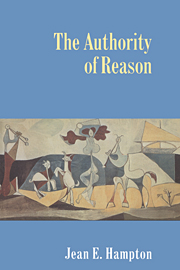3 - Reasons' Authority
Published online by Cambridge University Press: 02 December 2009
Summary
There is something in this more than natural, if philosophy could find it out.
– William Shakespeare, HamletThus far we have still not located precisely what it is about ethics that appears to make it scientifically problematic. In this chapter, I shall argue, using the analyses of the last chapter, that it is a certain thesis held by moral objectivists about moral norms and the reasons they generate that fails to pass scientific muster. According to this thesis, there are norms that generate reasons whose authority over us is objective, and moral objectivists accept this thesis with respect to moral norms and reasons. However, moral objectivism is merely a version of normative objectivism, which is a general position that assumes this thesis with respect to one or more types of norms (which can be epistemic, political, and so on). One can be a normative objectivist but not a moral objectivist, and one can be a normative objectivist about morality but refuse to accept the thesis for any other type of norm. I shall argue that the consistent naturalist must oppose all forms of normative objectivism, where moral objectivism is just a particularly popular version of this more general view.
The first task is to develop a minimalist and metaphysically neutral theory of the normativity of reasons, since all parties accept that there are such things as reasons that oblige us.
- Type
- Chapter
- Information
- The Authority of Reason , pp. 83 - 122Publisher: Cambridge University PressPrint publication year: 1998



